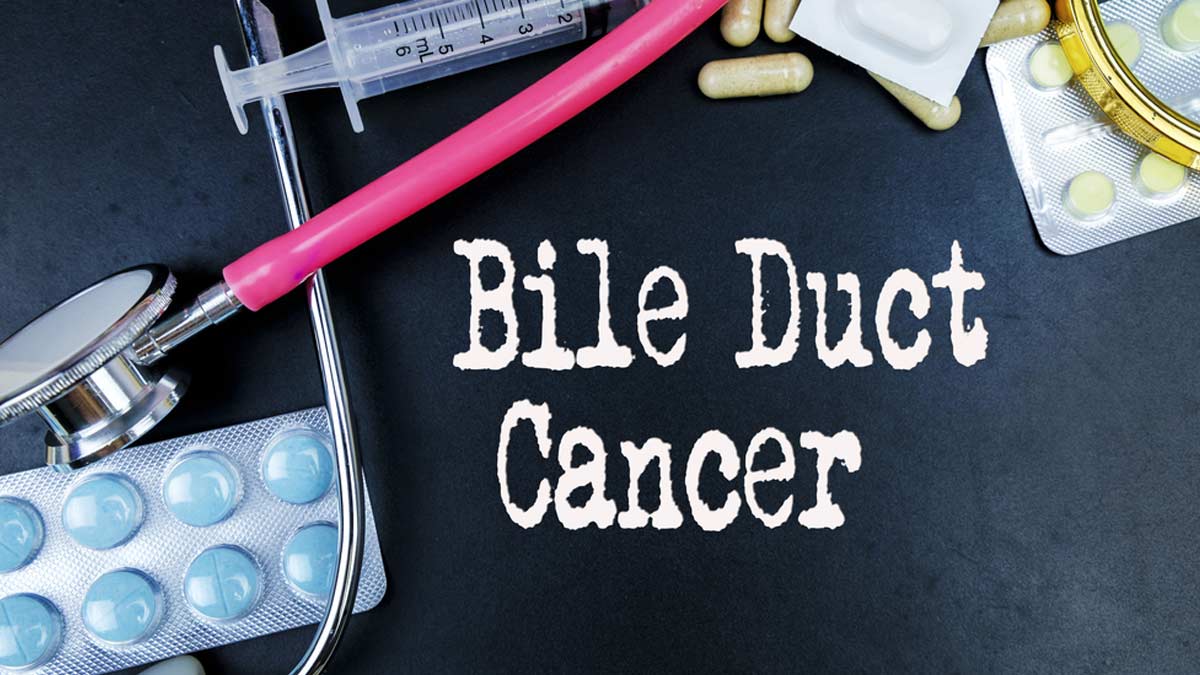
Bile duct cancer is one of the rare types of cancers that can pose a major threat and can prove to be fatal if not treated on time. Also called as cholangiocarcinoma, bile duct cancer forms in bile ducts which are small tubes that carry the digestive fluid bile from the liver to the gallbladder through pancreas in the small intestine. The bile flow through these ducts is blocked when cancer develops in them.
According to study, Cholangiocarcinoma, or bile duct cancer, occurs when a malignant (cancerous) tumour grows in one of the ducts that transport bile from the liver to the small intestine.
To debunk the common myths associated with bile duct cancer, OnlyMyHealth team interacted with Dr Chalapthi Rao Achanta, Clinical Director & Chief of Dept, Interventional Endoscopy, KIMS- ICON Hospital Visakhapatnam.
Debunking Common Myths Around Bile Duct Cancer
The panic around cancer is usually followed by all the myths and stigma among people. Here are a few myths that are commonly associated with bile duct cancer.

Myth 1: It is not curable.
Fact: According to Dr Achanta, bile duct cancer is treatable, especially if detected early. However, it's often found at a later stage, which can make treatment difficult.
Myth 2: All tumours are cancerous.
Fact: Assuming that all tumours are cancerous is incorrect. “Benign tumours are typically localised and do not spread or form cancer,” Dr Achanta said.
Myth 3: No pain means no cancer.
Fact: As per Dr Achanta, bile duct cancer can exist without causing pain, especially when in its early and developing stages. Some cancers may not cause pain until they have progressed significantly.
Also read: Bile Duct Cancer: Early Warning Signs You Must Not Overlook

Myth 4: Bile duct cancer is genetic.
Fact: Talking about cancers being genetic, Dr Achanta said, “Yes, family history can be a reason for bile duct cancer but it is not always because of the genetic factors. Bile duct cancer can also occur due to numerous factors like smoking, drinking, dietary habits, obesity, and infection in the body.”
According to Dr Achanta, many cancer-related myths and misconceptions are linked to end-stage diagnoses. “Given the rapid progression of medical science, awareness is crucial in addressing life-threatening diseases like cancer. Early detection techniques such as endoscopic retrograde cholangiopancreatography (ERCP) and cholangioscopy are essential for identifying bile duct cancer promptly,” she said. Timely diagnosis allows for appropriate treatment, improving the likelihood of recovery from bile duct cancer and other diseases.
Also read: Bile Duct Cancer: How It Impacts Your Liver And Symptoms To Note

Symptoms Of Bile Duct Cancer
Following are the common signs and symptoms of bile duct cancer.
- Jaundice
- Dark urine
- Clay coloured stool
- Pain in the abdomen
- Fever
- Itchy skin
- Nausea and vomiting
- Unexplained weight loss
Bile duct cancer symptoms often imitate the symptoms of other digestive problems making it difficult to detect it at an early stage. Dr Achanta said, “It is of utmost importance to identify its symptoms, stay aware and get screened regularly and consult a doctor as soon as possible if you have any symptoms of bile duct cancer. Getting timely medical help is the key to fighting this serious condition.”
Concluding, Dr Achanta said, “By clearing up misconceptions with cancer facts and ensuring early detection, everyone can receive timely treatment and work towards better health.”
Also watch this video
How we keep this article up to date:
We work with experts and keep a close eye on the latest in health and wellness. Whenever there is a new research or helpful information, we update our articles with accurate and useful advice.
Current Version